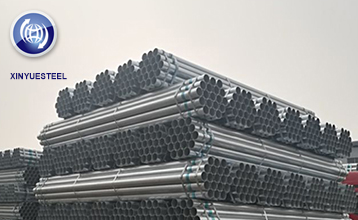Rebar fluctuates widely before the end of the off-season
Jun. 18, 2021
The south has entered the rainy season, and the demand for construction steel will fall further. However, this part of the demand that was delayed in purchase due to high prices in the early stage is expected to be released after the price drops back to the April level. It can be said that the rebar market has entered a game period, and it is difficult for the spot price to rise above 6000 yuan/ton again, and it is also difficult to break below 4600 yuan/ton.
In May, the price of rebar fluctuated sharply. After the May Day holiday, the bullish sentiment in the spot futures was consistent, and the downstream replenishment led to the accelerated upward movement of the disk. The main rebar contract rose by 14% to a maximum of 6,208 yuan/ton. On May 12, relevant control measures were introduced, and commodity prices began to fall. On May 13, the disk took a sharp turn, and by May 26, it had fallen by 23.5%, with a minimum of 4626 yuan/ton. However, it went up again afterwards. On June 4, it closed at 5159 yuan/ton, which has rebounded 11.52% from the low point.

Analyzing the current market, the policy has a greater impact on prices. Whether it is a rise under the "control of output" or a fall under the "guarantee supply and stable price", the policy dominates the market in the first half of this year. At this stage, the government's regulatory attitude towards the bulk commodity market is clear: "Stableness" is the core demand for the regulation of bulk commodity prices. Premier Li Keqiang repeatedly emphasized that it is necessary to make arrangements for the supply of bulk commodities, curb unreasonable price increases, strive to prevent transmission to consumer prices, and require multiple measures to strengthen the two-way adjustment of supply and demand. In addition, the China Iron and Steel Association also stated that neither a sharp rise nor a fall in prices would be appropriate. The reality is that when prices rose sharply in early May, the government strengthened the adjustment of the raw material market in order to prevent the upstream market from continuously squeezing the profits of the manufacturing industry, and eased the cost pressure of enterprises. Rapid convergence, the cost side supported the lower limit of steel prices, coupled with the phased release of demand and high overseas prices, steel prices rebounded instead.
Combined with the specific supply and demand data, it can be seen that both ends of the supply and demand are under pressure. On the supply side, the capacity utilization rate of steel mills’ blast furnaces has rebounded for five consecutive weeks. Even with different varieties, the output has generally rebounded, and the total output is approaching the 2020 high. Rumors in the market that Tangshan Steel Plant would relax its production restrictions were immediately falsified. With the high-level voices and the sharp drop in steel prices, market sentiment and expectations have changed, from the previous limited steel production to a short-term temporary unlimited production and some relaxation in the future. Judging from the current output, the output of steel mills is still at a high level. On the demand side, last week, the total transaction volume of construction steel traders across the country was 994,400 tons, an increase of 10,600 tons from the previous month, and the transaction increased steadily. At the same time, the apparent demand was 4.0815 million tons, an increase of 317,700 tons from the previous month, and a decrease of 375,300 tons from the previous year. From the perspective of macro demand, although real estate sales are running strongly, the hidden concern lies in the poor performance of new construction and land acquisition. The recent cement shipment rate is obviously lower than the level of the same period in recent years, and the real demand may be weak. The construction demand in the off-season is significantly under pressure.
In terms of inventory, as of the end of last week, the total inventory of rebar was 10.423700 tons, a decrease of 358,300 tons from the previous month. It has been declining for 12 consecutive weeks. The current inventory level is basically the same as the same period last year and is at a normal level. According to seasonality, when construction demand enters the off-season, rebar stocks will face the risk of accumulation in mid-to-late June.
At present, the rainy season in the south, the demand for construction steel is expected to shrink further, but this part of the demand that was delayed in purchase due to high prices in the early stage is expected to be released after the price drops back to the level of April. It can be said that the ferrous material market has entered a game period. At this time, any policy, event or data may be amplified and interpreted by the market. This is in line with the current bilateral pressure on the market as well as policy expectations. Therefore, under the background of entering the off-season of consumption, it is difficult for the spot price of rebar to return to 6000 yuan/ton again. First, it is unlikely that the downstream market will take over. Second, it will rise again or face more severe policy suppression. In addition, the expected supply contraction caused by the peak of carbon has always existed, and 4600 yuan/ton has strong support. It can be predicted that before the end of the rainy season, the price of rebar will continue to oscillate widely, and the overall fluctuation range is 4600-5500 yuan/ton. It is recommended to buy low and sell high.



